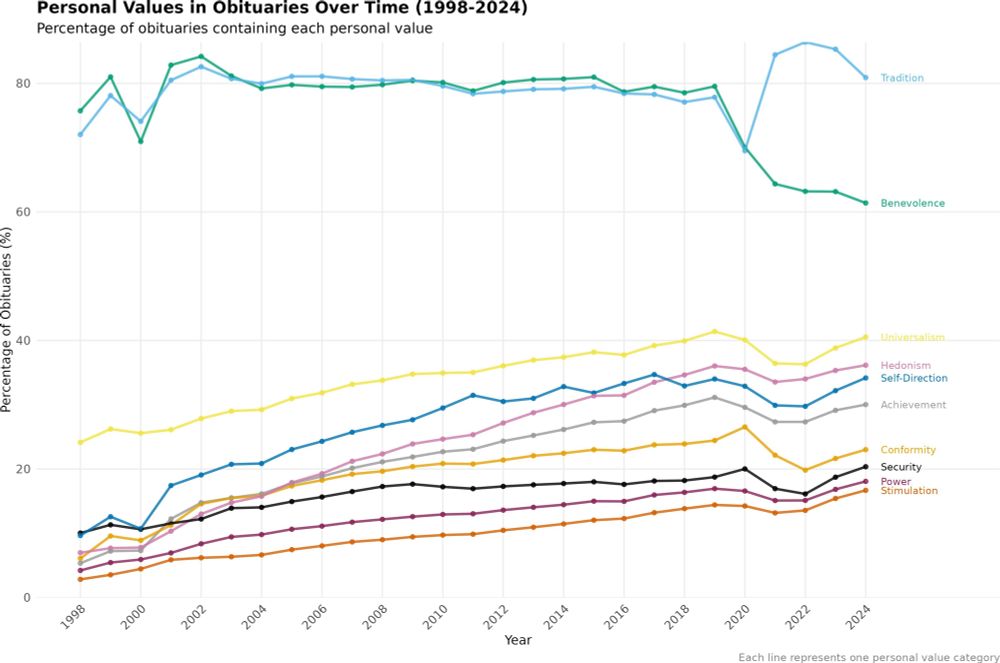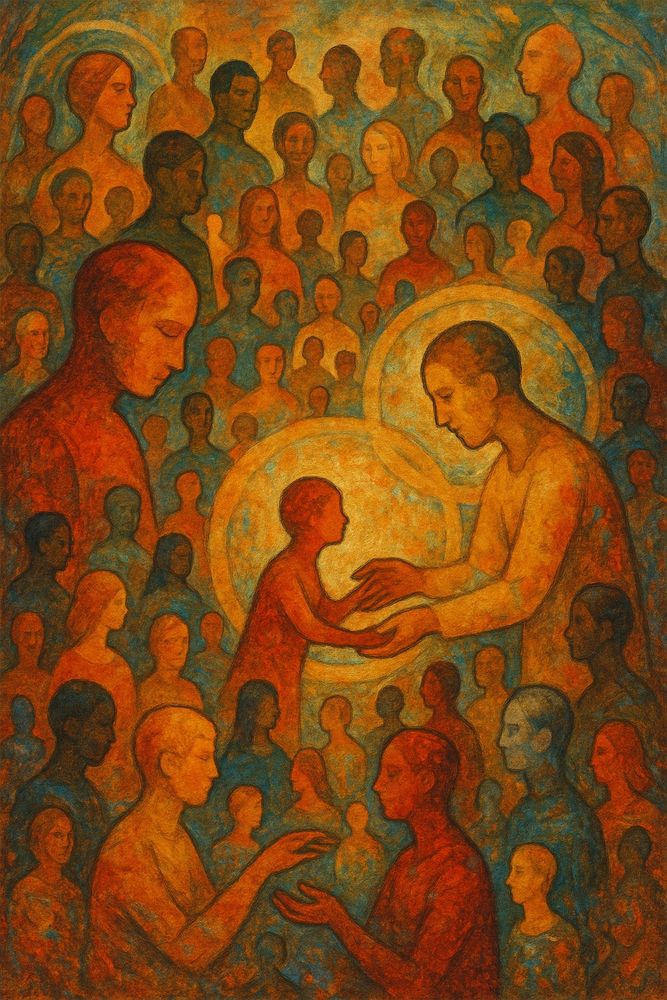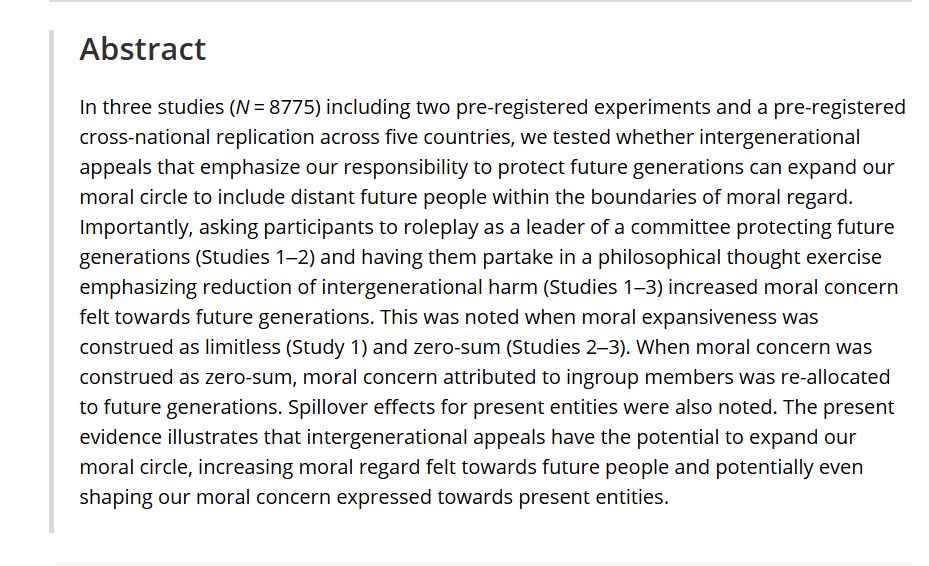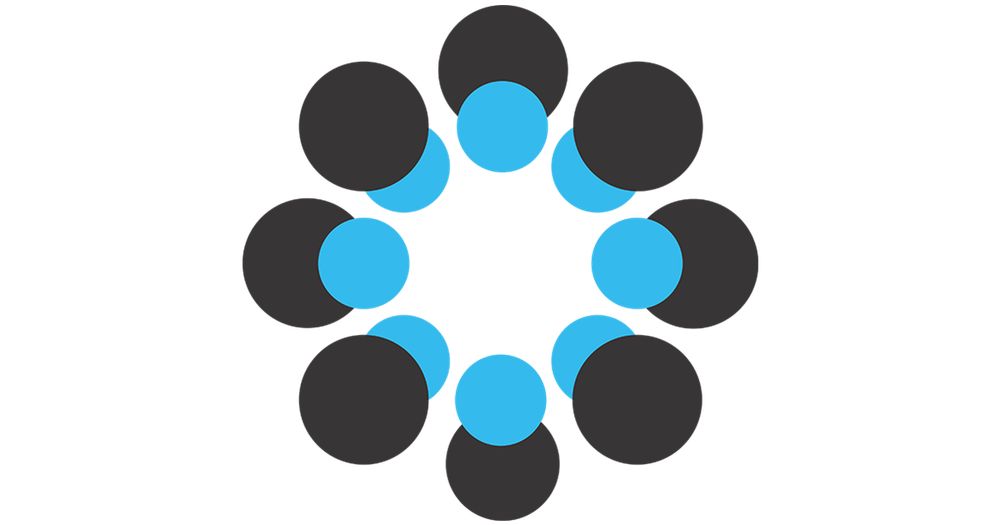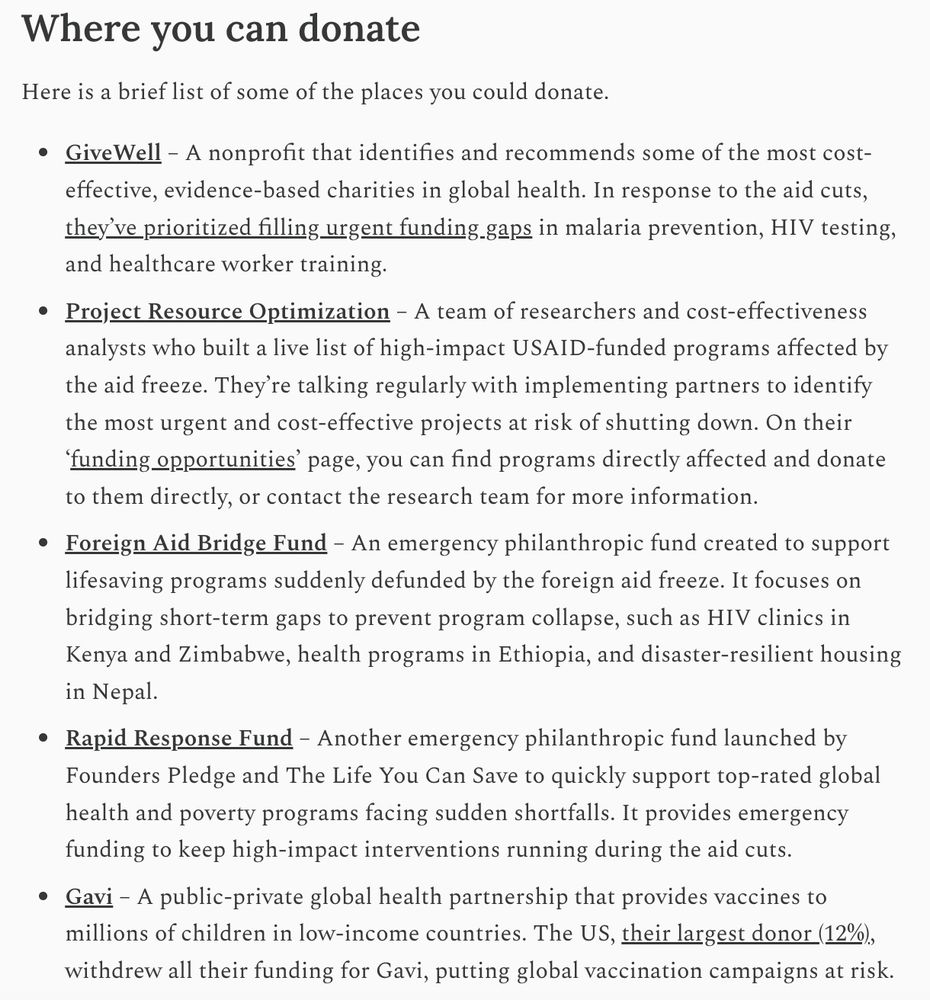Kyle Fiore Law, PhD
@kyleflaw.com
780 followers
1.5K following
93 posts
Postdoctoral Researcher, ASU | Moral Psychologist Traversing Social-Cognition & Ethical Philosophy | Exploring Exceptional Altruism to Foster a Brighter Collective Future | He/Him
kyleflaw.com
Posts
Media
Videos
Starter Packs
Pinned
Kyle Fiore Law, PhD
@kyleflaw.com
· Aug 27
Kyle Fiore Law, PhD
@kyleflaw.com
· Aug 27
Kyle Fiore Law, PhD
@kyleflaw.com
· Aug 27
Kyle Fiore Law, PhD
@kyleflaw.com
· Aug 27
Kyle Fiore Law, PhD
@kyleflaw.com
· Aug 27
Kyle Fiore Law, PhD
@kyleflaw.com
· Aug 27
Kyle Fiore Law, PhD
@kyleflaw.com
· Aug 5
Kyle Fiore Law, PhD
@kyleflaw.com
· Aug 5
Kyle Fiore Law, PhD
@kyleflaw.com
· Jun 3
Kyle Fiore Law, PhD
@kyleflaw.com
· Jun 3
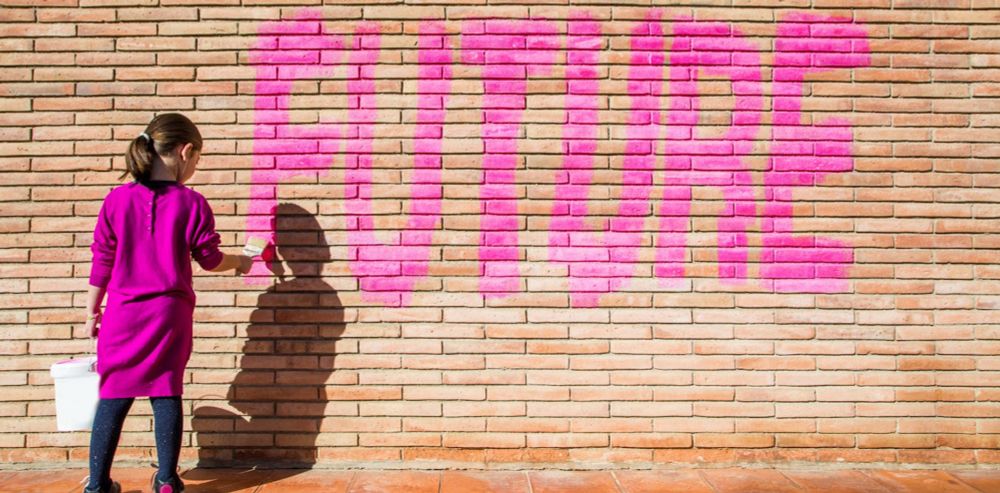
We asked over 8,700 people in 6 countries to think about future generations in decision-making, and this is what we found
When people reflect on how their actions shape the future, they are more likely to support solutions to present-day issues like poverty and inequality.
theconversation.com
Reposted by Kyle Fiore Law, PhD
Reposted by Kyle Fiore Law, PhD
Kyle Fiore Law, PhD
@kyleflaw.com
· Apr 24
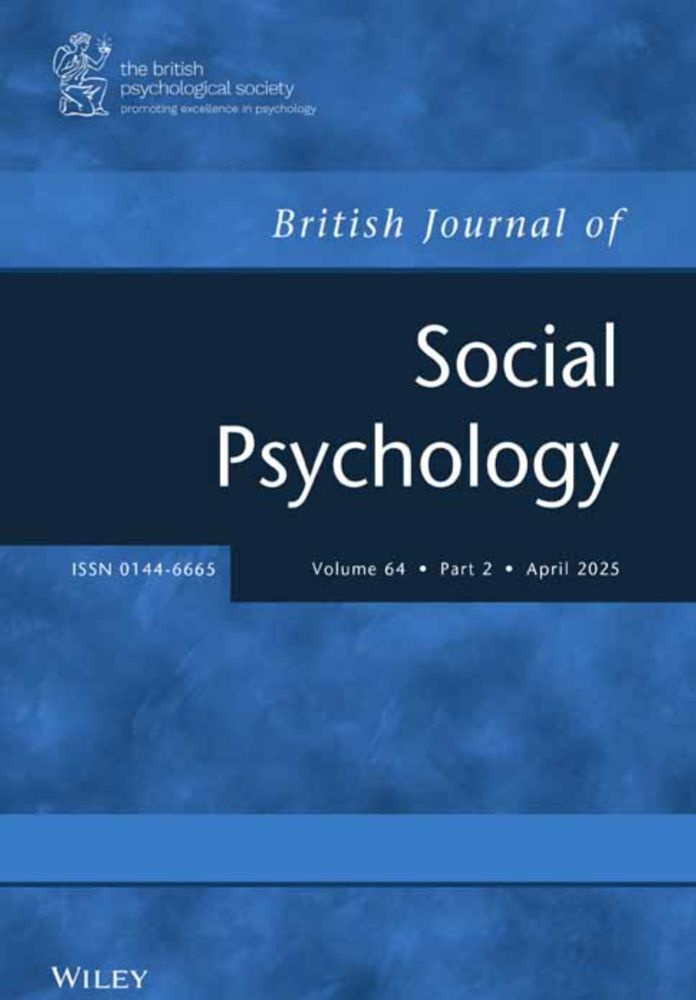
<em>British Journal of Social Psychology</em> | Wiley Online Library
In three studies (N = 8775) including two pre-registered experiments and a pre-registered cross-national replication across five countries, we tested whether intergenerational appeals that emphasize ...
bpspsychub.onlinelibrary.wiley.com
Reposted by Kyle Fiore Law, PhD
Kyle Fiore Law, PhD
@kyleflaw.com
· Apr 19
Reposted by Kyle Fiore Law, PhD

